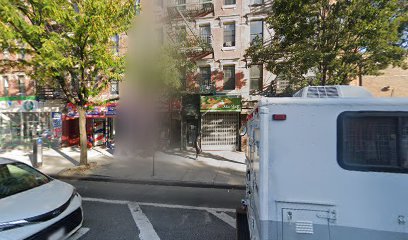By Alexander Dworkowitz
Asian-American voters in Queens faced hostile poll workers, discrimination and a lack of interpreters among other problems when they voted at the polls last fall, a non-profit group found.
Last week the Asian-American Legal Defense and Education Fund released a report titled “Asian-American Access to Democracy in the NYC 2001 Elections.”
According to AALDEF, Queens Asian-Americans and in particular Korean-Americans faced barriers to voting despite efforts on behalf of the city Board of Elections to improve conditions at the polls.
“People should not be discriminated against because of race, ethnicity or their ability to speak English, and that is what our report found is happening,” said Glenn Magpantay, a staff attorney for AALDEF.
The study was produced based on information from various Asian-American groups, an AALDEF phone hotline as well as the monitoring of 35 polls in the Sept. 25 primary, the Oct. 11 run-off and the Nov. 6 city elections.
AALDEF is a nonprofit advocacy group which works to promote civil rights of Asian-Americans through litigation, legal advocacy and community education with the help of volunteer attorneys. The organization works with various law schools, including Columbia University School of Law, CUNY Law School at Queens College and New York University School of Law.
One of the largest problems facing Asian Americans was what the report termed “poll worker hostility.” It said during the primary election 139 Asian voters reported that poll workers were hostile and 60 Asian voters had the same complaint during the general election.
“Poll inspectors were less polite and occasionally curt toward Asian voters and were cheerful and accommodating toward white voters,” the report said about the PS 20 polling site in Flushing.
Even though identification is not required to vote, a poll worker in Flushing and a poll worker in Richmond Hill demanded to see proof of identity, the study found.
Many inspectors were suspicious that translators were telling voters who to vote for, the report said.
The report also documented administration problems. Many individuals who had been voting for years were not listed on voter registration rolls, according to AALDEF.
Nevertheless, AALDEF acknowledged improvements at the polls. Increased pay for election workers and expanded efforts to recruit bilingual poll workers alleviated many of the problems said to have occurred at the city’s polls during the 2000 presidential election, the report said.
“They have taken steps to remedy some of the problems,” said Magpantay.
Michael Sternlieb, coordinator of the Board of Elections’ language assistance program, said the report’s finding were not a surprise.
“It identifies certain problems that we are aware of and we are working to correct,” he said.
Sternlieb said six poll workers in Queens were dismissed as a result of complaints documented by AALDEF.
“We’re committed to insuring that all voters have the right to vote,” said Sternlieb.
A primary concern of AALDEF’s is the translation of ballots into Korean.
Ballots currently are available in both English and Spanish throughout New York City. In selected areas, ballots also are written in Chinese. The advocacy group wants to have Korean put on the ballot in Flushing, which has the highest concentration of Korean Americans in the city.
In order for a language to make the ballot, a county must have at least 10,000 residents who speak a particular language and either speak English poorly or not at all.
“I think it’s very important,” said Steve Yun, executive director of the National Korean American Service and Education Consortium, another non-profit advocacy group. “The Korean-American community has shown a clear demonstrated need.”
Sternlieb said the census would likely show enough Korean Americans in Queens to put Korean on the ballot, although probably not in time for this year’s election.
“I expect that Koreans will qualify,” he said.
Reach reporter Alexander Dworkowitz by e-mail at Timesledger@aol.com or call 229-0300, Ext. 141.































